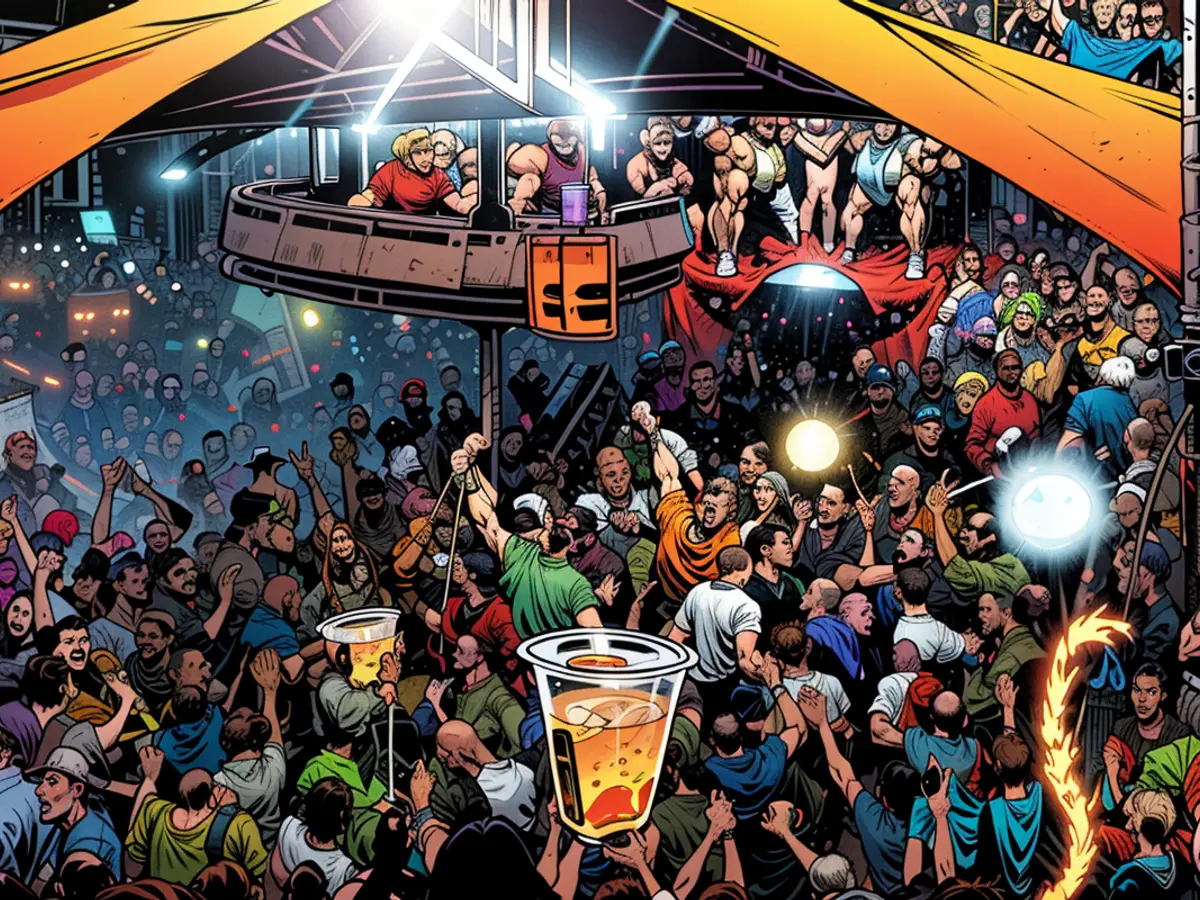Drugs - 13 highly dangerous drugs detected at the Fusion Festival
At the Fusion-Festival, experts detected 13 highly dosed pills during the weekend's instant drug checks. Warnings were issued to festival attendees, stated Gernot Rücker, a drug expert from the University of Rostock, on Tuesday. A total of 446 samples were analyzed. Among them were 153 pills. Regarding the 13 highly dosed pills, Rücker remarked, "We were surprised ourselves."
Mecklenburg-Vorpommern had started the first legally secured drug-check program on large festivals in Germany, according to their own statements. Festivalgoers in Lärz could have their drugs tested for purity in minutes. A team from the University of Rostock led the mobile lab on site.
The demand for the drug check was very high, forming long queues at the acceptance point, Rücker said. He looked positively on the high acceptance of the initiative. "Drug checking should become part of the standard repertoire for festival safety in the future," he added.
Mecklenburg-Vorpommern's Health Minister Stefanie Drese (SPD) also expressed satisfaction. "In some cases, the instant drug check at Fusion saved consumers from life-threatening consequences," she said. Rücker's team significantly contributed to the festival's successful outcome. "The substance analyses show how dangerous consumption is," Drese added. Approximately 80,000 female visitors and male visitors were present at the Fusion-Festival.
The scientific evaluation of the collected data is expected to last until the end of the year, according to Rücker. The data will also be used for a publicly accessible database to provide information on drugs.
In Mecklenburg-Vorpommern, a 13-year-old girl had died in June of the previous year after consuming an Ecstasy pill named "Blue Punisher." She became unconscious and died in a clinic. The cause of death, triggered by the highly dosed active ingredient in the pill, was a brain hemorrhage that led to brain damage.
- Gernot Rücker, a drug expert from the University of Rostock, expressed surprise at finding 13 highly dosed pills during the Fusion-Festival's drug checks.
- Mecklenburg-Vorpommern's drug-check program, initiated by the Health Minister Stefanie Drese (SPD), was instrumental in detecting these dangerous substances at large festivals in Germany.
- The high demand for drug checks at the Fusion-Festival in Lärz led to long queues, with over 80,000 festival visitors eager to ensure the purity of their substances.
- Rücker's team, based at the University of Rostock, played a crucial role in conducting these checks, potentially preventing life-threatening consequences for many festival visitors.
- Musikfestivals in Deutschland should integrate drug checks into their safety protocols, as suggested by Rücker, to protect the health and well-being of festival attendees.
- The data collected from the drug checks will contribute to a publicly accessible database, helping to raise awareness about the risks associated with drug consumption.
- Unfortunately, the tragic incident involving a 13-year-old girl's death after consuming an Ecstasy pill named "Blue Punisher" in Mecklenburg-Vorpommern underscores the importance of these proactive measures.








